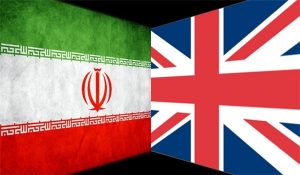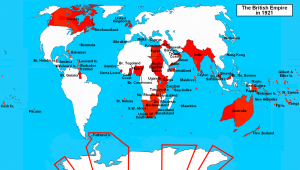The British Labour Party Uses Humanitarian Assistance as a Means of International Diplomacy In the Twenty-First Century
The British political elite were faced with a number of factors: first and foremost, the Americans did not approve of colonialism; the believed that they had fought a war for democracy and liberty and saw no reason for continuation of colonialism which they too had been victims of and rejected two hundred years or so earlier. There was also the socialist-inspired propaganda coming from the Soviet Union pointing at the exploitation and repression of the colonial system. Thus the British political elite had to seek solutions to safeguard British interests. Not being able to provide an effective defence for the Empire in the face of the world that emerged after 1945, British interests could easily become subordinated to the Soviet Union and/ or the United States. To safeguard and protect the huge and well-established prestige, way of life, culture, strategic basis, trade investments, and diplomatic influence on which Britain’s world role had mainly rested, the British political elite adopted an approach based on a diffused system of control.
The imperial decision makers in London after the Second World War proceeded with an accelerating and disciplined process of granting full political independence to all the Empire nations starting with India in 1947 and virtually completing the programme of decolonisation by 1963. However, the ex-colonies were encouraged to retain the old connections against such a dangerous and rapidly changing world. The persuasion of the British political elite led to the acceptance by most of the ex-colonies of the retention of the historical ties with the United Kingdom. The decision to maintain close links with Britain was embodied principally in practice by their incorporation in the British Commonwealth whose members up till then comprised only the Dominions. The incorporating of the newly independent nations and states (ex-colonies) in Africa and Asia post- 1945, into the British led to this new multi-racial- institution becoming known as the Modern Commonwealth or just the Commonwealth.
The retaining of the historical ties by the former colonies with Britain was one of the triumphs of the British Labour Government of 1945-51 and more to the point Ernest Bevin, the British Labour Foreign Secretary. In 1950 during the first meeting of the Commonwealth Foreign Secretaries in the Sinhalese capital of Colombo, Ernest Bevin, one of the greatest supporters of British imperial power managed to harmonise Labour socialist and anti- colonisation with British nationalism and the sense of Empire through the concept and reality of the Commonwealth, having always believed that the Empire would bring prosperity to the Colonies too, Bevin in 1950 in Colombo, converted his conviction into practice with the successful establishment of the Colombo Plan. Improving the economic and social conditions through Britain’s aid programme in the former Colonies the Empire was what made the maintaining of imperial ties by the ex-colonies through the Modern Commonwealth of Mutual material benefit. This plan was attractive and seductive for the ex-colonies, due to the fact that its effect was to sanction what was expedient now, while at the same time seeming to endorse most of what had been done in the past.



